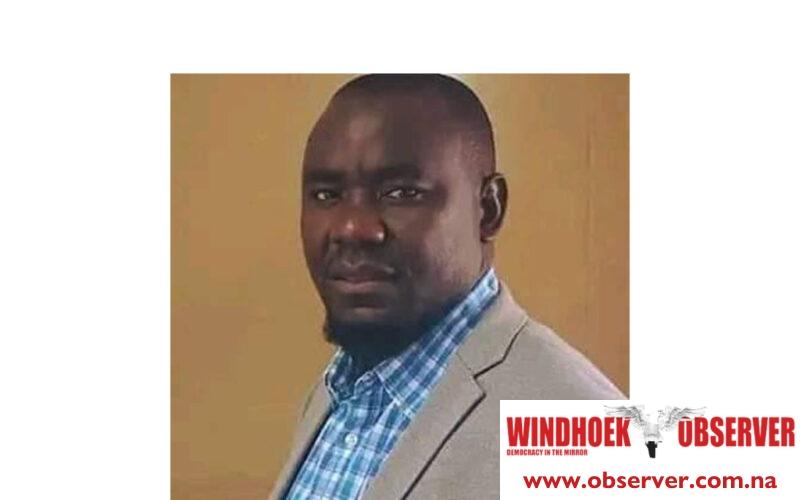Lazarus Kwedhi
Namibian society emerged from a history of German colonialism and apartheid under South African rule, during which native Namibians were denied access to quality education and economic opportunities. Post-independence Namibia is founded on public values of non-discrimination, including the constitutional right to education. However, despite this right, many Namibians still face challenges in accessing education due to financial constraints and limited government support. Therefore, finding a sustainable funding model for free education is critical to relieving low-income families of the financial burden and enabling their children to reach their full academic potential.
In her first State of the Nation Address (SONA), President Netumbo Nandi-Ndaitwah announced that tertiary education would be free starting in 2026. This announcement inspired hope among many students whose academic dreams were threatened by financial difficulties. While this is a step toward equity and improved access to education, the public seeks clarity on how this free education initiative will be implemented, particularly regarding the funding model and whether it will extend to private institutions within Namibia and abroad.
Although the government has declared free education at the primary and secondary levels, its implementation has faced criticism. Parents and guardians continue to bear costs related to school uniforms, stationery, textbooks, cleaning materials, development funds, transportation, and meals. This raises doubts about the true meaning of “free education” and whether it is merely political rhetoric. The government’s claim of providing free education is not fully realised in practice.
Furthermore, the promise of free tertiary education comes at a time when the education system is struggling with high failure rates. Of the 40,757 learners who sat for the Namibia Senior Secondary Certificate Ordinary (NSSCO) examination in 2024, 70% did not meet university admission requirements. This follows a trend from previous years—80% in 2020, 79% in 2021, and 65% in 2022 and 2023. The public wants to know how the government plans to address these academic shortcomings to ensure more students qualify for higher education.
Moreover, graduate unemployment remains a serious issue. Many tertiary graduates are unable to find jobs, with national unemployment standing at 36%. If the secondary education system continues to produce poor results and graduate unemployment remains high, the goal of free education may not achieve its intended outcomes. Addressing the quality of education and aligning it with labour market demands is essential. Internships offer temporary relief, but they are not a long-term solution. A comprehensive strategy that links tertiary education with labour market needs is required to improve employment outcomes.
While the idea of free education is commendable, its implementation depends heavily on available financial resources. Currently, over 80% of the national budget is spent on operational costs such as salaries, leaving limited funds for development. As a result, the government’s ability to fully fund free education is constrained. Parents and guardians continue to fill the funding gaps, despite the promise of “free” education.
The public seeks to understand how the 8th administration under President Nandi-Ndaitwah will address these budget constraints and reallocate funds from operational to developmental expenditures. Namibia’s current debt stands at N$165 billion—65% of GDP—with a projected budget deficit of N$12.8 billion. This raises concerns about the sustainability of free tertiary education.
Currently, tertiary education is funded through a mix of government subsidies and financial assistance provided by the Namibia Students Financial Assistance Fund (NSFAF). However, this model is not comprehensive, as many students are excluded, and the fund itself is financially unstable due to poor loan repayment rates. The NSFAF remains dependent on government support and is vulnerable to political influence, particularly during election periods.
During the SONA question session, Prof. Job Shipululo Amupanda of the Affirmative Repositioning movement welcomed the president’s initiative but raised concerns about its funding. He warned against financing free education through increased national borrowing and proposed an alternative funding model inspired by the Social Security Commission. In this model, both employees and employers would contribute a small percentage of monthly income toward a dedicated education fund, similar to how social security covers maternity leave and workplace injuries.
This proposal is rooted in the principles of Corporate Social Responsibility (CSR), which obligate businesses to reinvest in the communities where they operate. Instead of allowing profits to be exported while local communities remain underdeveloped, corporations should contribute directly to national development, including education. Prof. Amupanda’s model also aligns with the African philosophy of Ubuntu, which emphasises collective responsibility. Just as a community raises a child, it can also educate a child—with contributions from both workers and businesses.
Implementing a legally mandated employer-employee contribution model would not only secure long-term funding for education but would also foster a sense of shared ownership and responsibility. It would redefine CSR from a voluntary, charity-based approach to a structured, national initiative that directly supports education and national development. This model would also help address housing challenges by expanding employer responsibilities in other key areas.
In return, the education system, especially universities and vocational training centres, would produce skilled professionals who contribute to the labour market and the very industries that funded their education. This creates a sustainable, mutually beneficial cycle between the education sector and the economy.
In conclusion, while government efforts to provide free tertiary education are commendable, these efforts must be matched with practical, sustainable funding strategies. Prof. Amupanda’s CSR-based model presents a viable alternative that draws on community values, economic realities, and national unity. It is time for Namibia to rethink how it funds education and to consider inclusive, collaborative models that ensure quality education is accessible to all.




